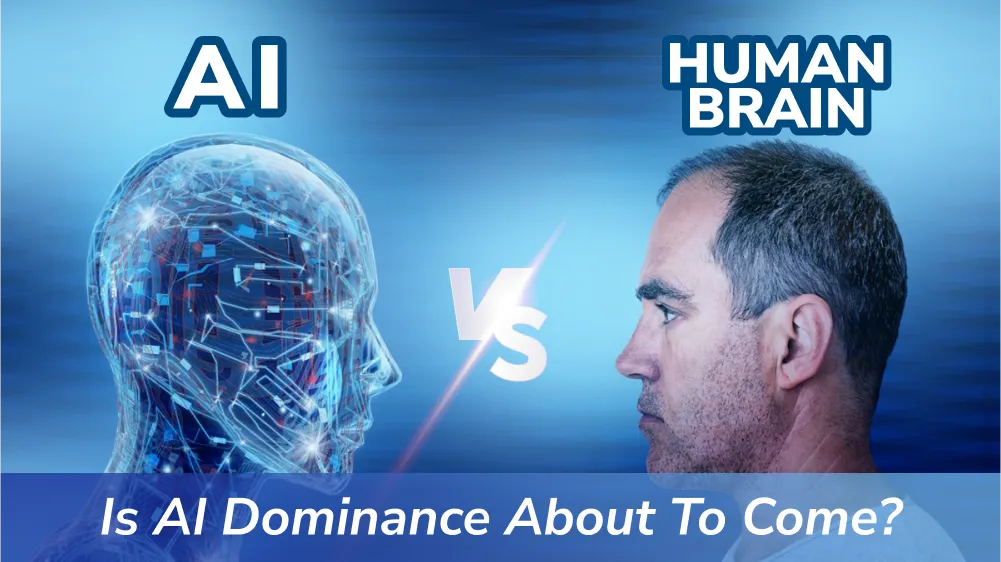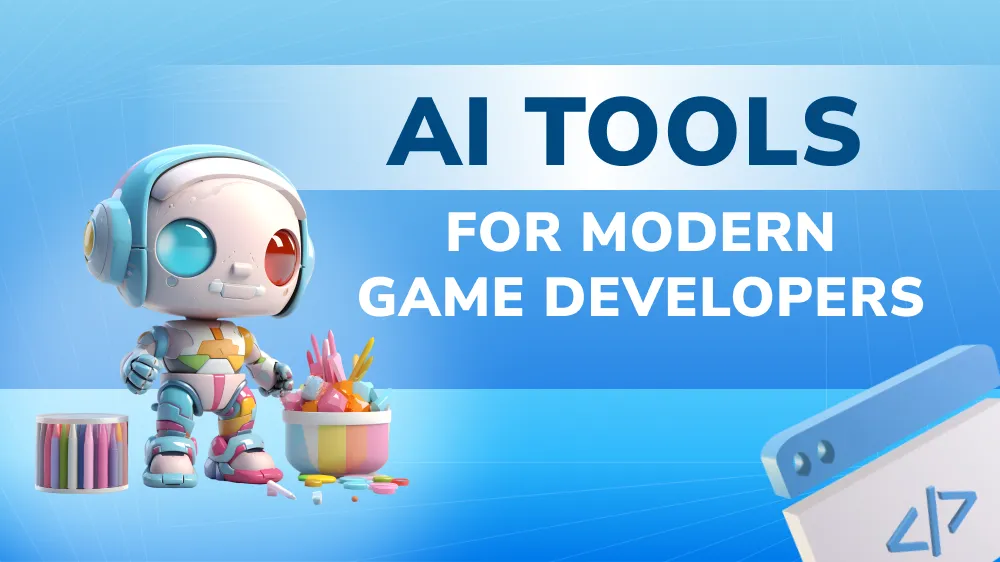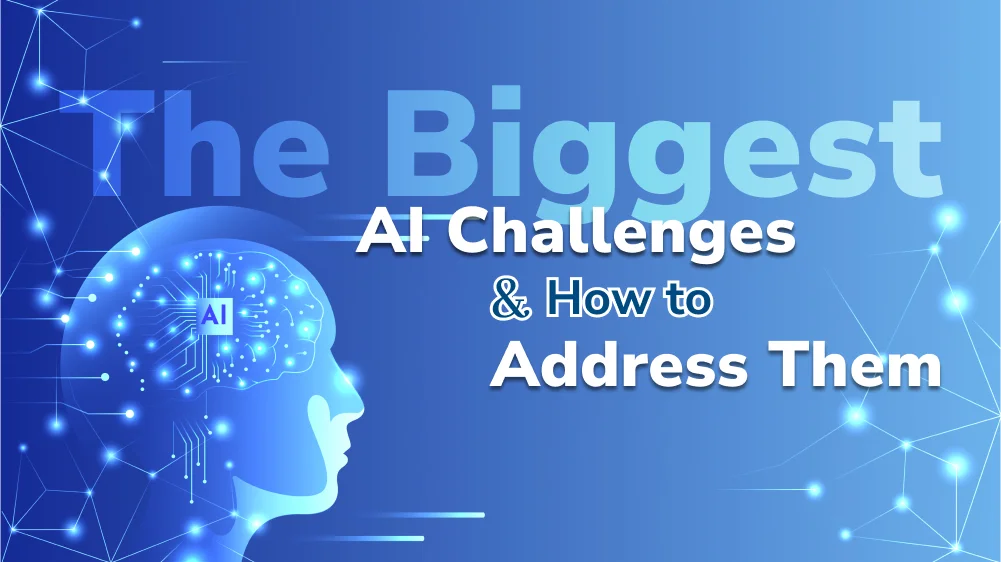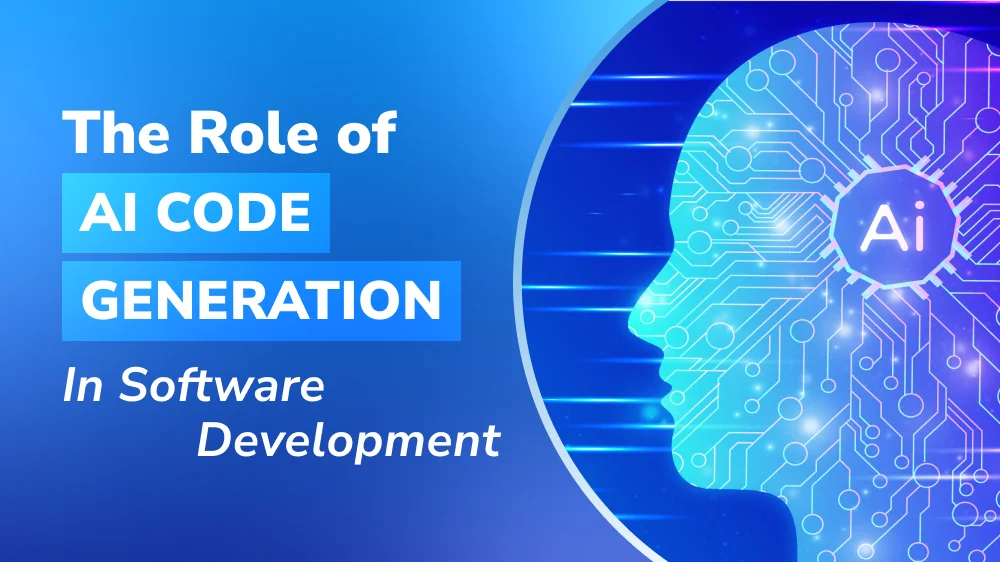AI Problems Unveiled: Unavoidable Issues in AI Deployment Every Business Faces
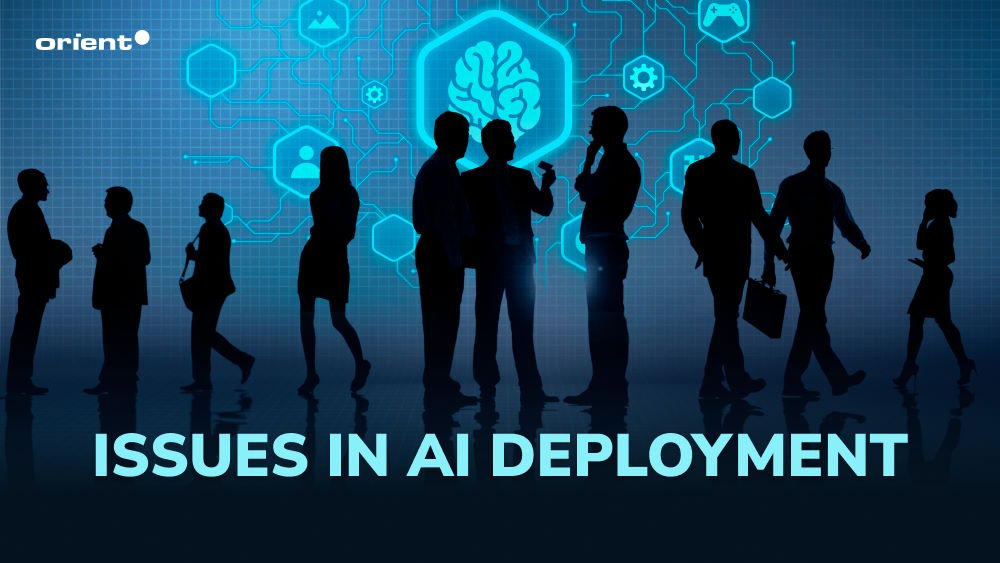
Content Map
More chaptersThe technology explosion has created favorable conditions for the development of artificial intelligence algorithms. By offering a multitude of benefits, AI helps change consumer behavior and deeply interferes with how businesses operate. AI methods are being used across industries and aspects, including entertainment and media, security, education, sales, fintech, etc.
Tasks that used to require manual work are now offloaded and automated with AI technology adoption. Have you ever heard of self-driving cars with the ability to automatically drive and move? Or the combination of big data and AI systems during the Covid-19 pandemic to collect data from multiple sources, helping businesses large and small test out the best treatment strategies in healthcare deployment? Regardless of the implementation purpose, revolutionary AI solutions all contribute to changing people’s lives in a positive direction.
However, everything has two sides, even AI technologies. It is the company’s business to fully equip the knowledge and resources to handle and maximize the full potential of this entire system. Otherwise, failures and profound risks caused by AI problems are things they can’t deny. Implementing AI in business operations with the wrong approaches causes businesses to lose huge investment costs. This loss is even higher than the opportunity cost that an investor or individual misses by choosing to implement a non-AI alternative.
So, the question is, “What are the most common AI problems that limit business from AI adoption?” and “How to navigate them?” Don’t miss this article because this is all you need.
Top Technical Hurdles in Integrating Artificial Intelligence (AI) in Business Operations

AI system both opens up new opportunities and creates undeniable challenges for businesses. A Deloitte survey shows roughly 94 percent of businesses face potential artificial intelligence implementation issues. AI algorithms do have their own inherent issues due to their nature, such as the lack of creativity and common sense, bias and discrimination, etc. However, most of the obstacles come from how the technology is used by businesses. To assist businesses, regardless of size, in implementing AI tools in business operations, this article will only cover artificial intelligence problems in technical aspects.
AI technical problems refer to the challenges that may arise during the implementation, development, and operation of AI algorithms, hindering their performance and reliability. Read on to learn more about the top unavoidable AI hurdles.
AI Implementation Cost Concerns
Because of its outstanding potential, AI systems require businesses, in addition to knowledge, to have a corresponding budget investment to use and promote AI strengths. However, budget is one of the prerequisites to help businesses operate smoothly and survive in this competitive market. Using the budget to ensure the effectiveness of internal activities while still adopting advanced technology is now becoming a difficult problem for many organizations.
How big is the cost related to AI implementation? Specifically, what costs must enterprises incur when integrating AI tools into their business operations? Here are some particular ones:
- Infrastructure and hardware costs
- Data acquisition and preparation costs
- Workforce expenses
- Training and maintenance costs
- Integration and deployment expenses
These costs may appear in any situation when you adopt new technology into business processes and products. However, AI systems require not only several expenses but also the quality of the portfolios. While IoT (Internet of Things) technology often relies on existing Internet infrastructure, highly complex artificial intelligence may require substantial supercomputer computing power, leading to higher expenses.
Also, with increasingly more high-quality data being collected and stored in the infrastructure, it is difficult for small and medium enterprises to maintain and pay for data flow along with rapidly increasing complex algorithms.
Solutions: Having decided to adopt AI technology into the current product, unfortunately, you cannot avoid the abovementioned costs. The advice for businesses is to optimize their financial strategy with specific solutions such as calculating ROI software, considering open-source AI frameworks and prebuilt AI models, and leveraging cloud services and infrastructure to reduce upfront costs.
Integration with Existing Systems Difficulty
Any business interested in AI technologies aims to utilize them for the improvement of their current systems, products, and services. However, advantages come only when AI is seamlessly integrated into such IT infrastructure and systems of an organization. The task of AI integration requires not only many complex steps such as AI use case defining, AI architecture choosing, testing and evaluation, etc., but also presents potential challenges during the implementation process.
The reason behind these difficulties can be varied due to several factors:
- Compatibility: Each system and each software product is developed using distinct software development technologies, programming languages, and frameworks. Integrating AI algorithms into existing products may lead to errors related to compatibility and communication.
- Data interoperability: Only the trained model based on human intelligence and data collected from new smart devices help AI bots get better every day. However, data gathering is increasing over time, making it difficult for businesses to control data quality issues as they come in various formats and structures.
- Security and privacy: Integrating AI technologies into existing systems that are already established with security protocols and privacy measures can easily raise security issues if necessary security standards are not ensured.
Solutions: Don’t be too hasty when conducting the integration process because it requires meticulousness from the development team. Be smart and start small to test the integrated product’s effectiveness, establish security protocols, and constantly monitor its performance to minimize disruption and errors. For inexperienced enterprises, consider consulting with technology enthusiasts and AI experts who can offer guidance throughout the journey.
Accessing AI Professional Shortage
Developer shortage is what businesses have to endure over the years. However, this talent shortage is even stronger in the AI niche. As a new technology, AI-related subjects in many educational institutions appear with relatively low frequency. While the demand always outpaces the supply, the lack of comprehensive training programs inadvertently contributed to the developer shortage. The growing array of tech giants and research institutions serving the need for ongoing professional development has left the AI market in a state of unprecedented competition.
Not only are they rare in number, but they are also one of the priciest groups in the tech industry. Costly recruitment and retention drive many startups with limited budgets off the AI adoption track despite the benefits that transcend modern technology.
Solutions: Only a limited number of qualified AI experts have real-world experience in successfully implementing AI projects. To access this scarce human resource, businesses need more policies to recruit talent with competitive compensation packages. Training and upgrading necessary knowledge for the in-house team is also a good way to maximize resources. Most quickly, you can rely on the help of outsourcing vendors like Orient Software to easily access the large talent pool from around the world.
Legal Obstacles Related to Data Security and Privacy
You must have heard at least once about applying AI to cybersecurity to keep data more secure. However, AI can still pose threats related to information security. The cause is not from AI technology itself. Still, how enterprises use and manage resources, the nature of data, the complexity of AI systems, and the potential vulnerabilities in AI systems have created gaps in the management system.
Specifically, creating AI models can result in legal considerations related to data security and privacy due to these common reasons:
- Data collection and consent: Feeding AI bots with training data is not the only way to train these models, while structured data from databases and unstructured data from IoT smart devices also enrich AI’s ability to generate accurate results and predictions. However, collecting personal and sensitive information without appropriate consent may violate privacy regulations.
- Data security and profit: With the large volume of data coming from various sources, AI system becomes a lucrative target for cyberattacks. Insufficient security measures for data can result in data leakage, exposing sensitive information to the dark web and leading to legal consequences.
- Biased information and fairness: Biased information may result from lacking good data. If those data lead to discriminatory outcomes, businesses may face legal obstacles regarding equal treatment and fairness.
- Intellectual property and licensing: Creating AI models may sometimes involve using pre-algorithms, models, or datasets. Without carefully considering the factors related to licensing agreements and intellectual property rights, enterprises can easily get involved in legal agreements related to ownership and usage rights.
Solutions: Closely monitoring the AI integration process and training employees to use artificial intelligence algorithms is the way to help you minimize data security and privacy issues. To ensure everything is on track, it is vital to consult legal professionals and stay up to date with laws and regulations pertaining to AI and data privacy. A DPA (Data Processing Agreement) that outlines the specific requirements for personal data processing within the European Union (EU) and the European Economic Area (EEA), and the California Consumer Privacy Act (CCPA) in the US are particular examples.
Long for Substantial Computing Power
AI technologies, especially machine learning and deep learning algorithms, are computationally demanding and require massive processing power. To effectively scale AI models that are more complex and larger, businesses need to regularly upgrade their infrastructure and significant computational resources. However, this is a big problem for small-budget companies when high-performance infrastructure such as GPUs (Graphics Processing Units), processors, or TPUs (Tensor Processing Units) require time and large investment budgets. While it may be possible to continue using outdated computing infrastructure for simple AI tasks, slower execution speeds and resource limitations on such systems may lead to bottlenecks and degraded performance.
Not only bringing many disadvantages to businesses in terms of facilities, energy consumption, and environmental impact is also considered a painful problem when investing in modern computing systems. The considerable carbon footprint related to energy consumption may adversely affect the environment and waste resources in vain if, unfortunately, AI products fail.
Solutions: Addressing computing power challenges requires a combination of approaches, including optimizing AI models to reduce computational requirements, utilizing available cloud-based resources, and upgrading distributed computing and parallel processing techniques. Today, with the growth of the Internet, you can also take advantage of edge computing instead of entirely relying on cloud-based services. Smartphones or IoT devices from users are alternatives that help reduce the data transfer need and minimize latency in real-time AI applications.
There is no denying that implementing AI lays a myriad of challenges for businesses. The solutions above will certainly help you somewhat in the difficult road ahead. However, apply them sparingly because the nature of each company and product is different.
Don’t let difficulties slow you down, and ignore the great benefits of adopting AI. Contact Orient Software if you need assistance from industry experts. Not only do we give useful advice, but we also provide AI services, which cover the entire business intelligence process. Stay ahead of the curve with us.

